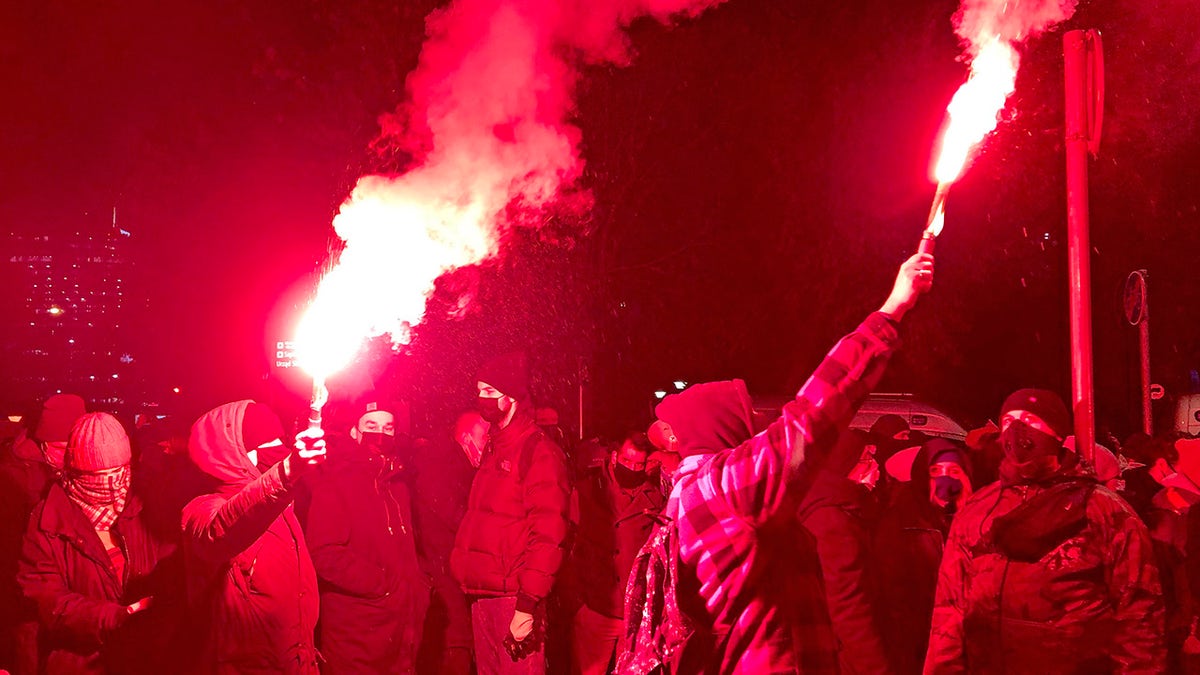Fox News Flash top headlines for May 28
Fox News Flash top headlines are here. Check out what's clicking on Foxnews.com.
An increasingly influential Polish Catholic legal institute, which lobbied for the recent restriction of abortion rights in Poland, is planning to open an international university in Warsaw, seeking to educate a new generation of conservative lawyers.
The institute, Ordo Iuris, plans to announce details of its project at an inaugural conference Friday in Warsaw. In online materials, it says the university, called Collegium Intermarium, will be a "space of free debate and courageous search for truth" when it begins teaching students from across the region in October.
A spokesman said it is meant as a counterweight to existing universities, which the group views as excessively liberal, and which currently educate many of those who fill the ranks of European institutions.
Intermarium (Latin for "between the seas") is a historical term that refers to a swath of central Europe between the Baltic, Black and Adriatic seas. It also is an area where Ordo Iuris and other conservative groups have been working.
The Polish culture and education ministers will speak Friday, underlining the group’s closeness to the government, some of whose members have belonged to Ordo Iuris in the past. Other speakers are to include the Hungarian justice minister and Vaclav Klaus, the former Czech president.

People light flares as they march near the ruling Law and Justice party headquarters in Warsaw, Poland, Wednesday Jan. 27, 2021, to protest after the country's top court on Wednesday confirmed its highly divisive ruling that will further tighten the predominantly Catholic nation's strict anti-abortion law. The Constitutional Tribunal published the justification of its decision, which means it can now be officially printed and take immediate effect. (AP Photo/Czarek Sokolowski) (AP)
SUSPECTS STOLE OVER $740K IN CHURCH DONATIONS: POLICE
Ordo Iuris is widely viewed with suspicion by LGBT and women's rights groups as it pushes an agenda which they see as extremist. They accuse the group of working internationally to erode the rights they have gained in recent decades. They often cite Ordo Iuris' efforts to block the ratification by nations of the Istanbul Convention, an international treaty aimed at fighting domestic violence.
The group successfully backed an attempt to restrict abortion rights in Poland. It provided legal arguments to the constitutional court, which ruled last year that abortions in cases of fetal abnormalities are not constitutional. The result is that Polish women are now required to carry very sick or even unviable fetuses to term — a ruling that in practice drives more women to have abortions abroad. The ruling sparked weeks of mass protests in the country, which already had one of Europe's most restrictive abortion laws.
Ordo Iuris, which was founded in Poland in 2013, is part of an international conservative Catholic network known as Tradition, Family and Property (TFP), according to those who study its work and influence.
The institute has worked across the region, for instance assisting a Romanian group that successfully lobbied to block the legalization of same-sex unions.
Neil Datta, the head of the Brussels-based European Parliamentary Forum on Sexual and Reproductive Rights who has extensively researched Ordo Iuris, says he believes the university will become a center for training "a new cadre of elites that basically can transform and whitewash far-right thinking so it appears professional and acceptable in a certain political discourse."
CLICK HERE TO GET THE FOX NEWS APP
He said the plan reminds him of what happened in the United States, where the Christian right years ago began funding universities which over time produced new elites with influence at think tanks and in politics.
"This is a first step in the same thing," Datta said.
Ordo Iuris members say the group has been unfairly portrayed by activists and the media. Spokesman Maciej Grajewski told The Associated Press ahead of the conference this week that the group's members are unfairly depicted as fundamentalists and "guys in cloaks hating women."
He called that assessment "absurd," arguing that it works far more broadly than many people realize and that it aims to help children and families and also support freedom of trade.









































